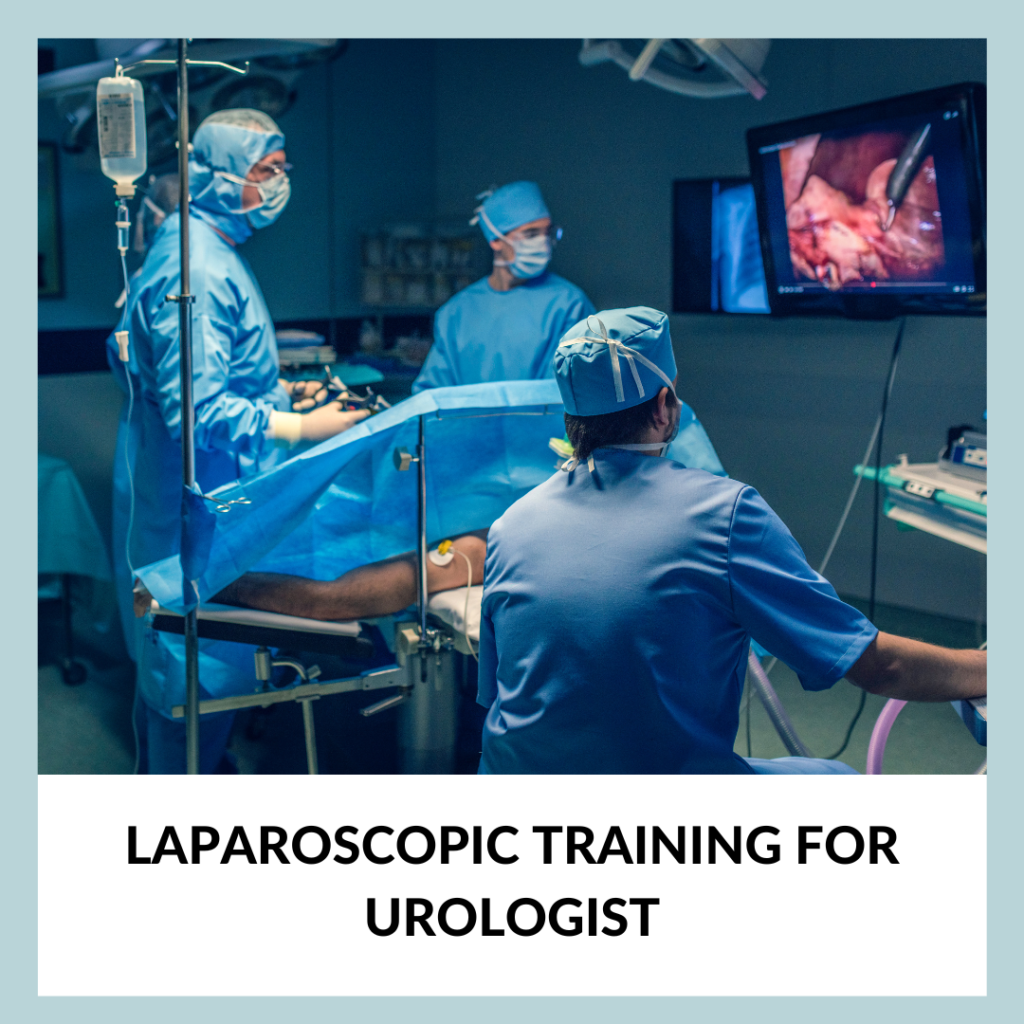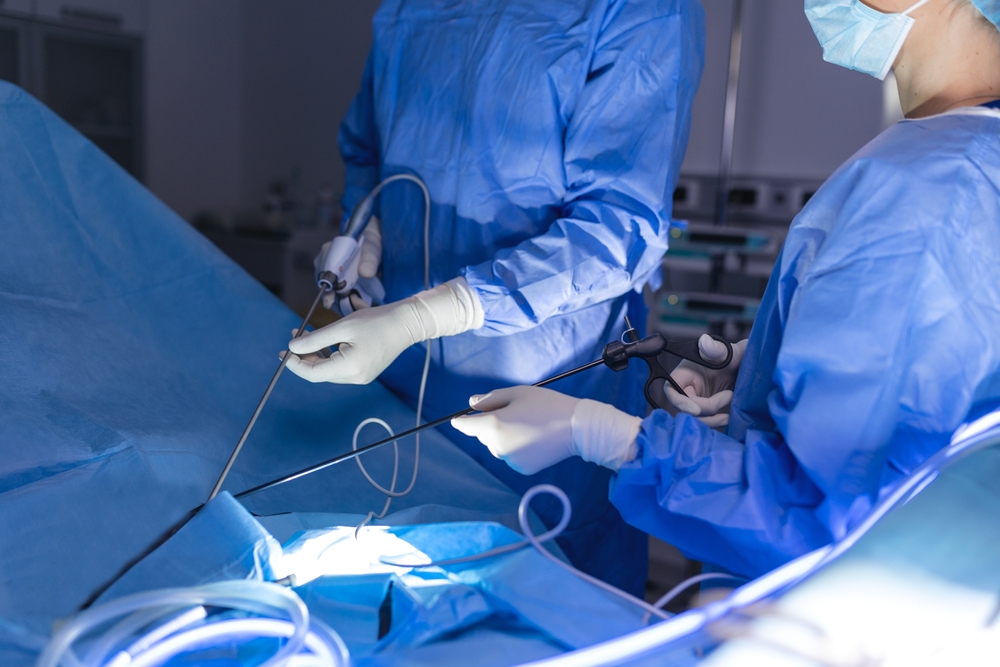- info@themedicity.com
- +91 8686-58-2020
- +91 9355-696-696
- Locations - Gurugram, India I Dubai, UAE
Laparoscopic course for urologist at The Medicity
Hands-on Training
Laparoscopic Course for Urologists
Laparoscopic Course for Urologists: Mastering Minimally Invasive Surgery at The Medicity

Laparoscopic nephrectomy, a minimally invasive surgical procedure for kidney removal, has revolutionized urological care. This advanced technique offers patients significant advantages over traditional open surgery, including smaller incisions, reduced pain, faster recovery, and less scarring. However, mastering laparoscopic nephrectomy requires specialized training and expertise. The Medicity offers comprehensive laparoscopic courses for urologists, focusing on the intricacies of this procedure, complication management, and the importance of hands-on training. This article delves into the details of laparoscopic nephrectomy, highlighting the procedure, potential complications, and the crucial role of specialized training, particularly at The Medicity.
Understanding Laparoscopic Nephrectomy: A Minimally Invasive Approach
Laparoscopic nephrectomy involves removing a kidney through small incisions using specialized instruments and a laparoscope (a thin tube with a camera). This approach contrasts sharply with traditional open surgery, which requires larger incisions and more extensive tissue manipulation.
The Laparoscopic Nephrectomy Procedure:
- Patient Preparation and Positioning: The patient is positioned appropriately, and anesthesia is administered.
- Trocar Placement and Insufflation: Small incisions are made, and trocars (ports) are inserted. The abdomen is insufflated with carbon dioxide to create space for the procedure.
- Visualization with the Laparoscope: The laparoscope provides a magnified view of the surgical field on a monitor.
- Renal Hilum Dissection and Vessel Control: The renal hilum (the area where blood vessels and the ureter connect to the kidney) is carefully dissected, and the vessels are controlled (clamped and cut).
- Parenchymal Dissection and Extraction: The kidney is separated from surrounding tissues, and it is extracted through one of the small incisions.
Laparoscopic vs. Open Nephrectomy: Weighing the Benefits
Laparoscopic nephrectomy offers several advantages over open nephrectomy:
- Smaller Incisions: Leading to less pain, scarring, and risk of infection.
- Faster Recovery: Patients typically experience a shorter hospital stay and quicker return to normal activities.
- Reduced Blood Loss: Minimally invasive techniques minimize blood loss during surgery.
- Improved Cosmetic Outcomes: Smaller incisions result in less noticeable scarring.
Potential Complications and Risk Mitigation in Laparoscopic Nephrectomy
While laparoscopic nephrectomy is generally safe, potential complications can occur:
- Intraoperative Complications:
- Vascular injuries (damage to blood vessels)
- Organ injuries (damage to surrounding organs)
- Hemorrhage (bleeding)
- Postoperative Complications:
- Infection
- Bleeding
- Urinary tract complications
Minimizing Risks: Thorough preoperative assessment, meticulous surgical technique, and experienced surgical teams are crucial for preventing and managing complications. Laparoscopic courses for urologists play a vital role in equipping surgeons with the skills to minimize these risks.
The Crucial Role of Training in Laparoscopic Nephrectomy: The Medicity Advantage
Mastering laparoscopic nephrectomy requires specialized training beyond traditional surgical residency. Laparoscopic courses for urologists are essential for developing the necessary skills and expertise.
Why Specialized Training Matters:
- Mastery of Laparoscopic Skills: Developing proficiency in hand-eye coordination, instrument manipulation, and 3D visualization in a 2D environment.
- Familiarity with Advanced Equipment: Understanding and effectively using laparoscopic instruments, cameras, and energy devices.
- Addressing the Learning Curve: Laparoscopic courses for urologists provide structured learning environments, including simulated surgical scenarios and mentorship opportunities, to shorten the learning curve.
The Medicity’s Laparoscopic Courses for Urologists:
The Medicity offers comprehensive laparoscopic courses for urologists designed to provide hands-on experience and expert guidance. Our programs feature:
- Comprehensive Curriculum: Covering all aspects of laparoscopic nephrectomy, from patient selection to postoperative care.
- Experienced Faculty and Mentors: Leading urologists with extensive experience in laparoscopic surgery.
- State-of-the-Art Facilities: Including advanced surgical labs and access to cutting-edge technology.
- Hands-on Training: Participants gain practical experience through simulated procedures and observation of live surgeries.
- Focus on Complication Management: Training emphasizes strategies for preventing and managing potential complications.
Benefits of Training at The Medicity:
- Enhanced Surgical Skills: Develop proficiency in laparoscopic techniques.
- Improved Patient Outcomes: Contribute to better patient care and reduced complications.
- Career Advancement: Enhance your professional skills and expand your surgical expertise.
Beyond Nephrectomy: Exploring Urogynecology Training
The Medicity also offers specialized training in urogynecology, including urogynecology training courses, urogynecology courses in India, and fellowships in urogynecology. These programs focus on the diagnosis and treatment of conditions affecting the female pelvic floor, offering comprehensive training in this specialized area.
Invest in Your Future: Enroll in Laparoscopic Courses at The Medicity
If you are a urologist seeking to enhance your skills in laparoscopic nephrectomy and other minimally invasive procedures, The Medicity’s comprehensive training programs are an excellent choice. Our laparoscopic courses for urologists, along with our specialized urogynecology training, provide the knowledge, skills, and experience needed to excel in the field of minimally invasive surgery. Contact us today to learn more about our upcoming courses and enrollment details.


